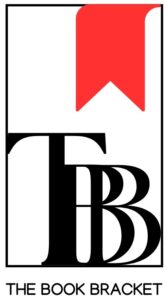
Unleashing the Power of Book Marketing: Comprehensive Guide
Aspiring and veteran authors alike are welcome. In the ever-evolving publishing landscape, mastering the art of book marketing is critical to standing out from the crowd. Whether you’re a debut novelist or a seasoned wordsmith, this comprehensive guide is designed to equip you with the tools and strategies you need to get your book into the hands of avid readers.
Section 1: Understanding Your Audience
Defining Target Groups
Identifying target groups is the basis of effective book marketing. Think about who your ideal audience is: their age, interests, and preferences. By knowing your target audience, you can tailor your marketing efforts to resonate with them.
Create Reader Personas
Create detailed reader personas to better understand your target audience. Are they an avid reader of romance novels or an avid fan of sci-fi adventures? The more you know about your audience, the better you can tailor your messaging and marketing channels to reach them.
Section 2: Building a Author Platform
Author Website
The Author Website is your online home. Make sure it reflects your brand, showcases your work, and provides an easy way for readers to get in touch with you. A professional and user-friendly website is a powerful tool for building your author platform.
Social Media Presence
In today’s digital age, social media is fundamentally changing book marketing. Build a strong presence on platforms that are relevant to your audience. Connect with your readers, share behind-the-scenes insights into your writing process, and use social media to build a community around your work.
Section 3: Preparing Your Book for Publication
Professional Book Cover
Do you judge a book by its cover? Well, readers often do that, too. Invest in a professionally designed book cover that captivates potential readers and conveys the essence of your story.
A Persuasive Book Description
Your book description is your selling point. Write a concise, compelling blurb that draws readers into your story. You have no choice but to pique their curiosity and add your book to their must-read list.
Section 4: Leveraging Online Platforms
Amazon and Other Retailers
Optimize your book’s presence on online retailers such as Amazon. Understand the importance of keywords, categories, and well-crafted book descriptions to increase your book’s visibility and discoverability.
Book Reviews and Recommendations
Positive reviews can make a difference. Encourage first-time readers, friends, and influencers to share their thoughts. Use book reviews to increase your credibility and attract more readers.
Section 5: Content Marketing
Blogging
Blogging is more than just sharing personal anecdotes. Use your blog to create content related to your book’s themes, characters, and writing process. It continues to captivate the audience and build anticipation for the next release.
Guest Posts and Interviews
Collaborate with bloggers and podcasters in your genre. Guest posts and interviews introduce you to new readers and provide valuable insight into your writing career.
Section 6: Offline Marketing Strategies
Book Signing Sessions and Events
Connect with readers on a personal level through Book Signing sessions and events. Whether virtual or in-person, these experiences leave a lasting impression and can increase book sales.
Local Media Outreach
Don’t overlook the power of local media. Contact newspapers, magazines and radio stations to share your story. Local reporting can generate buzz and engage readers within your community.
In the dynamic world of book marketing, adaptability is key. Employ these strategies and remember that marketing is a continuous process. Engage with your readers, stay true to your brand, and enjoy the journey of connecting your words with a growing number of readers.


